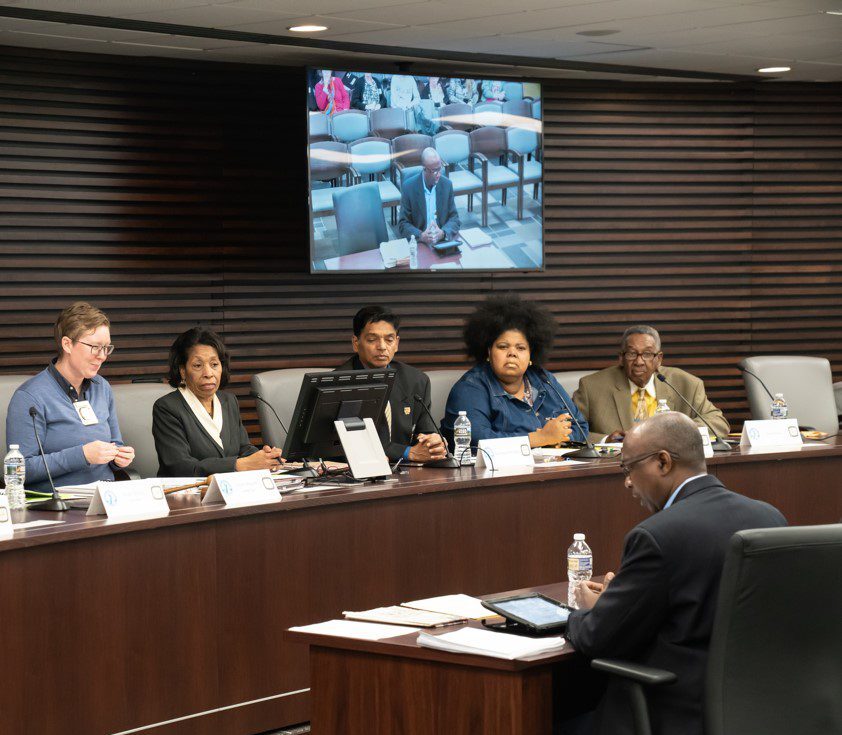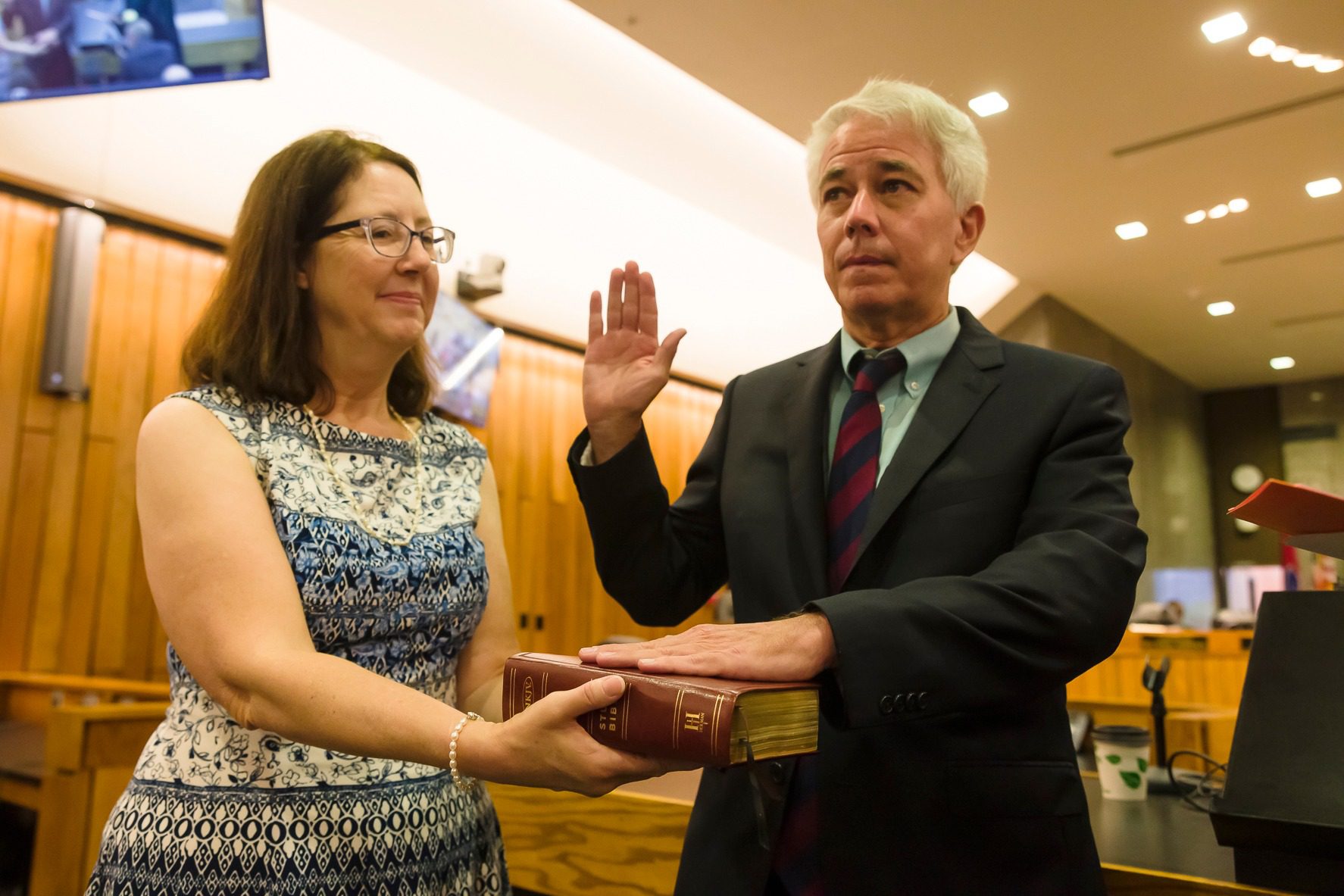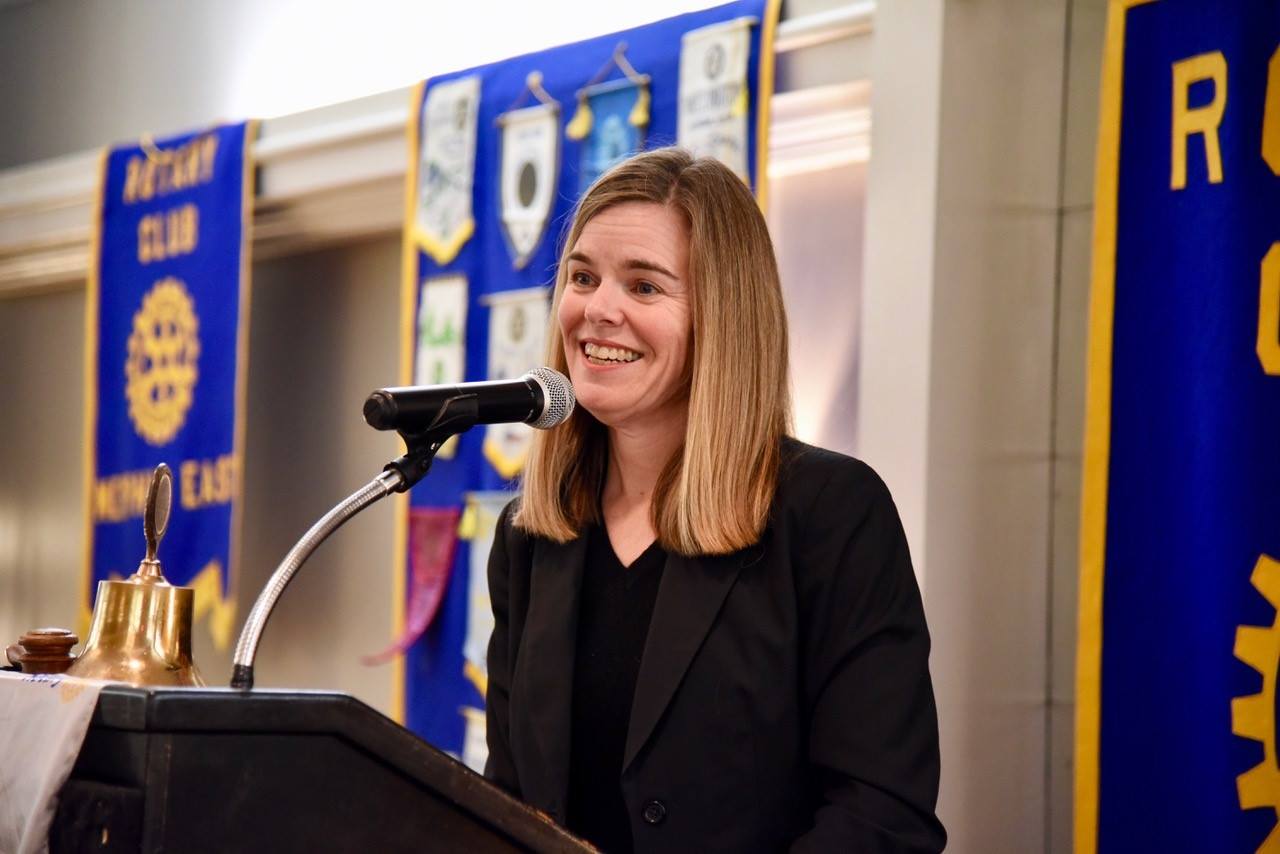“Our Voices Don’t Matter”: Tennessee Moves to Gut Police Oversight
Tennessee Republicans’ latest intervention in Memphis and Nashville affairs comes months after Tyre Nichols’s killing and weeks after they expelled lawmakers from the two cities.
| April 18, 2023

Editor’s note (May 18): Governor Bill Lee signed this legislation into law on May 17.
Soon after Tyre Nichols’s brutal killing by Memphis police officers in January, the chairman of the city’s civilian review board, James Kirkwood, appealed to the city council to strengthen its oversight of police. “If you slap someone on the wrist for something they’ve done wrong, then covered it up and left it alone, they’re going to do it again,” Kirkwood, a pastor and former police officer, told the council, requesting more money, more staff, and more power to conduct independent investigations.
Instead, what little power the board did have may soon vanish, as the Tennessee legislature draws closer to gutting civilian oversight over police in Memphis and other cities in the state.
Introduced in late January by GOP lawmakers, just weeks after Nichols’s death, Senate Bill 591 and House Bill 764 would dissolve community-led oversight boards in Memphis and Nashville, ending their ongoing investigations by the close of July and precluding the possibility of other cities establishing boards with similar powers.
“This bill essentially strips away police accountability in our state, at the height of a police killing that was so tragic and brutal,” said Jill Fitcheard, the director of Nashville’s Civilian Oversight Board. “These state legislators want to cut away oversight and police accountability and dwindle it down until it’s nothing.”
The Republican legislature’s latest assault on Memphis and Nashville, the state’s two most populous cities, comes just weeks after its headline-grabbing expulsion of two young Black lawmakers, Memphis’s Justin Pearson and Nashville’s Justin Jones, for leading a gun control protest on the House floor. The state government has engaged in a series of other maneuvers in recent months to interfere with self-governance in Tennessee’s bluer and more diverse cities.
The new bills would still allow local governments to set up what they call “police advisory review committees,” but local advocates and the Memphis and Nashville boards’ leaders—both former law enforcement officials—denounce these replacements as impotent. They would not be able to conduct independent investigations or take quick action on misconduct, and their members would no longer be appointed by community groups.
“The new law takes away robust investigative power from the committee and sends it back to internal affairs and the respective local governments,” said Sekou Franklin, a professor of political science at Middle Tennessee State University. “So the police would basically investigate themselves.”
The timing of this legislation stings particularly in Memphis, where advocates had hoped that the national spotlight after Nichols’s killing would spur long-needed changes to the way the city polices and prosecutes its residents, including to the city’s decades-old civilian review process. And it threatens to erase hard-won gains in Nashville, where years of struggle and coalition building led to a successful 2018 voter referendum establishing a board made up primarily of community-nominated members with the ability to issue policy recommendations.
“This is what the people want,” said Sheila Clemmons Lee, the mother of Jocques Clemmons, whose killing at the hands of a Nashville officer sparked the movement for community oversight there. “If you go back and look, see how many people came out to vote on this, plus the signatures that we had gathered for it—[this new legislation] is just saying that our voices don’t matter.”
In Memphis, renewed attention to police oversight after Tyre Nichols’s murder
Memphis’s Civilian Law Enforcement Review Board (CLERB) has been around since 1994, but it has often been condemned as underfunded and ineffective. In that, it’s hardly an outlier—many civilian review boards across the country, even those with more enumerated powers, struggle to achieve effective oversight of police. Barry Friedman, an attorney and scholar who published a 2022 report on civilian oversight boards, told Bolts in January that most boards are more symbolic than effective. All but six boards lack disciplinary authority.
In 2020, then-law professor Steve Mulroy wrote an article in Memphis Lawyer urging the mayor to issue an executive order requiring the Memphis Police Department to cooperate with CLERB and ultimately comply with its directives. His recommendations weren’t followed. Two years later, Mulroy was elected district attorney of Shelby County, ousting the incumbent prosecutor on promises of reform, and he now finds himself tasked with dealing with a department whose deep-rooted problems have been exposed to the entire nation. The Department of Justice recently announced a review of Memphis’s policing practices, and they may be considering a comprehensive “pattern and practice” investigation as well.
Mulroy’s office swiftly moved to prosecute the Memphis police officers responsible for Nichols’s death, and he has continued to call for stronger civilian oversight, telling Bolts in February, “we need comprehensive CLERB reform.”
Cardell Orrin, executive director of the Tennessee branch of Stand For Children, has also criticized CLERB for its many shortcomings. He believes many people who file lawsuits against the Memphis police department aren’t even bothering to take their case to CLERB, given its low number of yearly investigations (Memphis looked into just five cases in 2022, to Nashville’s 102.) “Of course, all of that is moot if the state takes away any ability even to have citizen oversight of police departments,” he told Bolts.
The introduction of the legislation that would abolish existing community review boards had shifted the goalposts: now, instead of pushing for stronger CLERB powers, advocates are left pleading for the preservation of any oversight at all.
“It’s better to have the structure in place,” Orrin said, noting that CLERB could look very different under a mayor who was more willing to implement policies like the ones Mulroy had proposed. “If you get rid of it you don’t even have the option.”
“It’s a walk in the wrong direction,” Kirkwood, who spent three decades in the Memphis Police Department before his retirement in 2017, told Bolts of the legislation. If only CLERB were adequately staffed, funded, and empowered to investigate and recommend changes to the department’s practices, “we could really do a whole lot,” he said. “I think our city deserves that.”
“You give a lot of authority to these men and women when you put this badge on,” Kirkwood reflected. “And they can take freedom, they can take life, they can take peace from individuals. They can cause a lot of harm with the authority that you’ve given them—and that authority needs to always be in a place where it can be checked. Not just by police but also by the citizens.”
In Nashville, a hard-won civilian oversight board under threat
Before Nashville’s civilian oversight board was established, all complaints about police conduct were routed through the Nashville police department’s Office of Professional Accountability, akin to an Internal Affairs department. Clemmons Lee told Bolts that hundreds of allegations of misconduct and brutality went unaddressed every year, with the office ruling against the vast majority of complainants. “All of these incidents was just scooted to the side,” she said. “You know, it is what it is. It’s just the police. No, it’s not. These are lives we’re talking about.”
In 2017, the death of Clemmons Lee’s son Jocques at the hands of a white police officer renewed long-standing calls for civilian oversight in Nashville. “It was a very brutal fight,” recalled Franklin, who was closely involved. “Our city council didn’t want it…two mayors opposed it. We had to build coalitions with veterans groups, immigrant groups, human rights groups, Jewish groups, Muslim groups.”
As the resulting group, Community Oversight Now, organized, the fatal shooting of another black man—Daniel Hambrick—by another white officer further galvanized the effort. “We knocked on doors, we held town halls and meetings trying to educate people about the Community Oversight Board,” Clemmons Lee told Bolts. “And the people listened.” After a successful petition drive, a measure to establish a civilian oversight board was put on the ballot, and on November 6, 2018, it passed with 59 percent of the vote.
The result: a robust board with 11 members, seven of whom must be nominated by community organizations or grassroots petitions—one of the most important components of effective civilian oversight boards, according to a 2016 paper by Udi Ofer, who then led the ACLU of New Jersey. The COB also enjoys a number of other qualities that Ofer highlights as critical to the success of such boards, including independent investigatory powers, and the ability to conduct audits and make policy recommendations, many of which the police department has accepted.
The board lacks some important powers, such as the ability to discipline officers, and it still has its work cut out for it. “Even with all of that taking place we’ve had a slew of police shootings and killings in Nashville, but the COB has probably prevented more police violence,” said Franklin. “A lot of that could be undone.”
“Once this oversight board is eliminated and [if] there’s no legal action—It will probably take decades to do something significant around police reform in the city of Nashville,” he added.
The Tennessee legislature continues to target its major cities
Nashville’s board has been under threat since before it was established. The city’s police union first took issue with the number of signatures on the petition, then sued to overturn the 2018 referendum’s results, in a case that they appealed all the way to the Tennessee Supreme Court. They lost each time.
“We faced so many different hurdles,” Franklin said. “And then—the one avenue that they have access to that we don’t have is state lawmakers.”
In 2019, the Tennessee legislature took up the fight, removing subpoena powers from the board. (Now, only the city council can compel witnesses to testify on behalf of the boards). In 2021, it required board members to complete a police academy course or risk losing their voting power. Pretty much since its inception, Fitcheard said, Nashville’s board has been “plagued with this cloud of legislation takeover.”
The new bills’ sponsors, Republican Representative Elaine Davis and Republican Senator Mark Pody, neither of whom represent either Memphis or Nashville, have said they want to standardize oversight procedures across the state. But Pody has also said that police feel like they are “under a microscope” under the current system. And both Pody and another supporter have made vague claims about oversight board members abusing their power but have not provided specifics. In a recent senate committee hearing, Senator Richard Briggs, a Republican from Knoxville, alleged that Tennessee Bureau of Investigations (TBI) Director David Rausch had told him that board members were interfering with crime scenes and that the bill would allow the TBI to “gather all the evidence without it being interfered with or contaminated by these outside boards.”
“It startled me,” Fitcheard told Bolts, to hear these allegations repeated by multiple sources given that no one had ever contacted her about them. “It was just fabricated, it’s not true.” Her lawyer reached out to Rausch asking for specifics, but received no response.
Bolts reached out to Pody, Briggs, and TBI Director Rausch to inquire about these allegations and request any available evidence that the events described took place. Pody and Briggs’ offices did not respond. Rausch’s office confirmed that a conversation between Briggs and Rausch took place, but would neither confirm the content of the conversation nor offer a response to any of Bolts’ other questions.
This legislation is progressing through a legislature that has been especially zealous in intervening in the local governance of its major cities, actions that one Nashville lawmaker called an “attack on democracy” in an interview with Bolts last month. This move comes on top of a recently-passed bill cutting the size of Nashville’s metro council by half, and a tabled bill that would have ended runoffs in local elections, which could have hampered Democratic candidates in the majority-liberal Nashville and Memphis.
“How far can a state body go before it clearly starts to infringe upon the rights of the citizenry in localities?” Orrin asked. “And, you know, that’s a question at some point for the courts to decide.” (Nashville is currently suing over the attempt to halve its council).
This state-level preemption of local governments isn’t unique to Tennessee. The Local Solutions Support Center, a national organization that aims to strengthen local democracy, has tallied over 600 preemptive bills across all 50 states that it deems “abusive”—instances of states using their power to overrule local governments and shut down legislation around such issues as abortion, housing, voting rights, and now, police oversight. LSSC attributes much of this push to the American Legislative Exchange Council, the right-wing group of lobbyists and legislators known for replicating identical legislation in states across the country. (ALEC, for instance, is behind many of the country’s critical infrastructure laws, which Bolts reported on earlier this month.)
The Tennessee legislature’s actions also appear to be largely retaliatory. The expulsion of Pearson and Jones, the lawmaker duo dubbed “The Justins,” came after the two young lawmakers led a gun control protest in the wake of a mass shooting in Nashville. Nashville politicians have complained that the bill targeting the council is a response to local lawmakers’ refusal to host the 2024 Republican convention. To Orrin, the timing of the civilian oversight legislation, introduced so soon after Tyre Nichols’s death, felt like a deliberate attempt to shut down the police accountability that Memphis residents were demanding. “Clearly it was because of the questions that were raised,” he said.
The bill that would abolish civilian oversight of police is now on the verge of becoming law. It has already passed the Senate 26-5 and is currently moving through House committees. If the bill passes the House, where Republicans enjoy a large majority, it would head to the desk of Tennessee’s governor, Republican Bill Lee, who has signed the bills weakening the state’s oversight boards in past sessions.
“They’ll continue to get away with murder”
Activists don’t have to look far for evidence of what may soon change with the bill’s passage. The legislation would authorize cities to retain some police committees—whether they choose to convert their existing stronger boards within 90 days to fit the bill’s far weaker requirements, or create a new body later on. And its sponsors say that they are modeling these new bodies off of Knoxville’s existing police review committee.
Kirkwood and Fitcheard both said that Knoxville’s model, which was established in 1998, is outdated and insufficient to the task. “Policing has changed greatly since then,” said Fitcheard. Moreover, she said, “They haven’t been funded well.” She added, “Up until the last few years, it just had one person reviewing complaints. So how effective is that?” (Nashville’s board receives over $2 million annually and has several full-time staff).
According to the bill’s most recent version, the new boards would need to have members who are appointed by the mayor rather than community residents. They would not be allowed to investigate any incidents that occurred before Jan. 1, 2023, meaning that some currently open cases would never receive any conclusion or closure. And even for incidents after that date, obstacles to accountability would accumulate.
The committees would be prohibited from taking up cases before all other avenues—Internal Affairs investigations, civil suits, and criminal cases—were completed. Given the yearslong delay this would entail, Kirkwood told Bolts, “a complainant probably would walk away.”
And when a committee does complete an investigation, it would boomerang back to the local police department’s Internal Affairs. In Nashville, the office is run by a woman who, in her previous job as an assistant DA in Nashville, failed to disclose potentially exculpatory evidence in a murder case against a teenager—in this case, that a central witness for the prosecution was arrested with the murder weapon in his possession.
Clemmons Lee contemplated a future Nashville without its civilian oversight board. “It’s gonna get worse,” she said. “They’ll continue to get away with murder after murder after murder after murder.”
Sign up and stay up-to-date
Support us
Bolts is a non-profit newsroom that relies on donations, and it takes resources to produce this work. If you appreciate our value, become a monthly donor or make a contribution.




